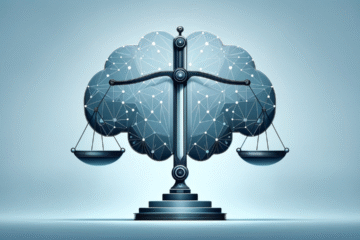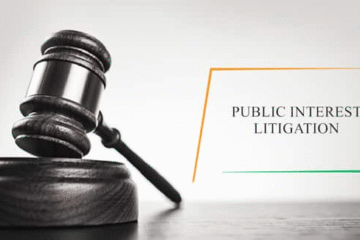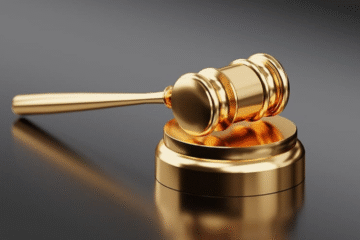
This article is written by Syed Abul Abbas of 2nd Year of LLB HONS of University of Lucknow
Abstract
This article will discuss about the fundamental rights which are guaranteed to the citizen of India by the constitution of India. The fundamental rights are the basic rights provided to the citizens to uphold their dignity, freedom etc. This right affirms the principle of natural law and that there is no one above the law and that rights of the citizen cannot be snatched by the government. Part III of the Indian constitution contains long list of fundamental rights –
Right to equality (Articles 14-18), right to liberty (Articles 19-22), right against exploitation (Articles 23-24), right to freedom of religion (Articles 25-28), right to culture and education (Articles 29-30) and right to constitutional remedies (Articles 32-35). This inclusion of a chapter of fundamental rights in the constitution of India is in accordance with the modern democratic thought, the idea being to preserve that which is indispensable condition of a free society.
Keywords – fundamental rights, constitution of India, democratic, citizen
INTRODUCTION
Part III of the Indian constitution contains a vast list of fundamental rights. Following the spirits of magna carta of the British and the declaration of rights of a man and the citizen of France, the Americans incorporated the bill of rights in their constitution status. As a result, the framework for the integration of the bill of rights was already present while the Indian constitution was being drafted. This served as inspiration for the constitution’s framers, who included a whole chapter addressing fundamental right. This chapter of fundamental right in the Indian constitution is the most elaborate and comprehensive set of basic rights.
The aim of having a declaration of fundamental rights is that certain elementary rights, right to life, liberty, freedom of faith and so on, should be regarded as inviolable under all conditions.
Need for fundamental rights-
Fundamental rights were deemed essential to protect the rights and liberties of the people against encroachment of the power delegated by them to their government. There are limitations upon all powers of the government, legislative as well as executive and they are essential for the preservation of public and private rights, notwithstanding character of political instrument.
Considering the significance of fundamental rights in the historical ruling of
Maneka Gandhi V. Union of India (AIR 1978 SC 597),
Bhagwati, J said:
These fundamental rights express the basic values that the people of this country (India) have cherished since the time of the Vedas to protect the dignity and dignity of individuals and to enable each person to fully develop his individuality. create the conditions in which it can develop.” They have “created a formula that guarantees the basic structure of human rights and imposes negative obligations on the state not to interfere in various aspects with individual liberties.”
The purpose of including the Fundamental Rights Bill in the Constitution of India is to establish a “rule of law, not man”, a system of government where the tyranny of the majority does not oppress the minority. In other words, the goal is to establish the rule of law and it is not an exaggeration to say that the Indian Constitution is far superior to other international constitutions in this respect. It aims to ensure security and equality of citizenship for those who live in this country, thereby supporting the nation-building process, but equally supporting the needs of justice, citizenship, treatment and fair play. It also guarantees good standards.
They were intended to make all citizens and persons appreciate that the superior law of the land has swept away privileges and has laid down the paramount perfect equality between one section of the community and another in the matter of all those rights which are essential for the material and more perfection of man.
In M. Nagraj v. Union of India [AIR 2007 SC71], the Supreme Court held- The fundamental rights are not gift from the State to citizens. Part III does not confer fundamental rights but confirms their existence and give them protection. Individuals possess basic human right: independently of any Constitution by reason of basic fact that they are the human race These rights are important as they possess intrinsic values. Its goal is to remove some issues from the realm of political contention so that they are out of the purview of majorities and officials and are established as legal principles for judicial application.
CLASSIFICATION OF FUNDAMENTAL RIGHTS
The fundamental rights as provided in the Indian Constitution can be classified under the following six groups –
- Right to equality [article 19-18]
- Right to freedom [ article 19-22]
- Right against exploitation [article 23-24]
- Right to freedom of religion [ Article 25-28]
- Cultural and educational law [Article 29-30]
- – The right to constitutional means [Article 32-35]
The 44th amendment has abolished the right to property as a fundamental right as guaranteed by article 19 [1][f] and article 31 of the constitution, hence article article 19 [1][f] and article 31 has been omitted.
There are some fundamental rights available to citizens as well as non-citizens, they are as follows-
- Equality before law (Article 14);
- Protection in respect of conviction for offences (Article 20);
- Protection of personal liberty and life (Article 21);
- Right to education (Article 21-A);
- Protection against detention and arrest (Article 22);
- Prohibition of trafficking in humans and forced labour (Article 23);
- Prohibition of employment of children in factories, etc. (Article 24);
- Freedom of free profession, practice and propagation of religion (Article 25);
- Freedom to manage religious affairs (Article 26);
- Freedom for tax payment for promotion of any particular religion (Article 27);
- Freedom as to attend religious worship in certain educational institutions (Article 28);
- Right of minorities to creation and management of educational institutions (Article 30) and
- Right to remedies for enforcement of fundamental rights (Article 32).
Protection of following fundamental right is available only for citizens of India –
Prohibition of discrimination on grounds of religion,race,caste,sex or place of birth [ article 15]; equal opportunity in matters of public employment [ article 16]; protection of certain rights regarding – to freedom of speech and employment; to assemble peacefully and without arms; to form association, union and cooperative societies; to move freely through territory of India; to reside and settle in any part of the territory of India; to practice any profession or carry any occupation [ article 19].
FUNDAMENTAL RIGHTS AVAILABLE AGAINST THE STATE
The right to a constitutional remedy under part III of Indian constitution is Article 32. This article establishes the supreme court as the protector and guarantor of fundamental rights. Dr B.R Ambedkar considered this right as the heart and soul of the constitution.
Constitutional protection for individuals from the State is necessary. The fundamental rights that citizens are guaranteed under Part Ill of the Constitution serve as a safeguard against State action as opposed to private parties violating those rights. The common law of land provides sufficient protection for private activity.
In P.D. Shamdasani v. Central Bank of India
AIR 1952 SC 59
With a complaint under Article 32 of the Constitution, the petitioner sought protection from the Court on the grounds that his property right under Article 19 [1][f] and article 31 were infringed by the actions of another private person – central bank of India. The Supreme Court rejected the proposal and stated: “Neither Article 19(1) nor Article 31(1) was intended to prevent illegal actions by an individual or to provide protection against purely private actions.
The language and structure of Article 19, as well as the fact that it’s setting in Part Ill of the Constitution, make it abundantly clear that the Article’s purpose was to safeguard those liberties from State action other than when it was acting in the proper exercise of its authority to do so.
- Article 32 – Right to constitutional remedies
The constitution of India guarantees certain remedies in case the fundamental rights of the citizens are violated. The state does not have the power to curb the rights of the individual. In case rights are violated, then the aggrieved party can approach the court. The supreme court can also be indirectly approached.
Following are the writs, the court can issue-
Writ of Quo Warranto – ‘by what authority’
It’s a writ issued with a view to restraining a person acting as in a public office to which he/she is not entitled.
It requires the concerned person to explain to the court, by what authority he/she holds the office.
Writ of Prohibition – ‘to forbid’
It is issued a higher court to stop a lower court – tribunals from exceeding its jurisdiction.
Not available against –
- Administrative and legislative bodies
- Private individuals or organisations
Writ of mandamus – ‘we command’
It is an order from a superior court to inferior courts or tribunals or public authority. The court uses this writ to order a public employee who has neglected or refused to perform his duties to get back to work. The writ of Mandamus is also issued against a public body, an inferior court, a corporation, a tribunal, or a government.
Writ of habeas corpus – ‘to have a body of’
It is used to secure a person who has been unlawfully or illegally detained; can be issued against both private individuals as well as public authorities.
Writ of certiorari – ‘to be certified’
- It is issued by the higher court to some inferior court or tribunals to transfer the matter to it.
- It can be issued on the grounds of;
- Excess of jurisdiction or lack of it,
- Error of law.
The following are the basic fundamental rights available against the state as well as private sector –
- Article 15 – states that no citizen shall be subjected to any form of discrimination on the basis of caste, religion, place of birth or caste. It is available against any person, which means that anyone who discriminates in any way on any of the grounds listed will be punished.
- Article 17 – This is the abolition of inviolability. It conveys the idea that untouchability is wrong and will result in punishment.
- Article 23 – talks about the prohibition of human trafficking and forced labour.
- Article 24 prohibits the employment of children in factories in hazardous locations.
If any of the fundamental rights are violated, a person can easily approach the high court under article 226 or the supreme court under article 32 to enforce the fundamental rights.
Article 226 gives the High Court discretionary power to issue directions, orders, injunctions in the nature of corpus, mandamus, prohibitions, quotas and certificates of the High Court.
Suspension of fundamental rights.
Fundamental rights are not absolute rights. The Constitution therefore provides for the curtailment or suspension of fundamental rights under the following circumstances:
Article 358 provides that if the President declares a state of emergency under Article 352, the freedoms guaranteed by Article 19 are automatically suspended and will continue to be so for the duration of the state of emergency. The suspension of the rights guaranteed by Article 19 thus removes the limitations on the legislative and executive power of the state imposed by the Constitution. No law, executive order passed by the State during this period can be challenged on the ground that they are inconsistent with the rights guaranteed by Article 19. However, such laws shall cease to have effect once the declaration ends and then Article 19 shall automatically revive and come into operation. However, Article 358 clarifies that things done or omitted during the state of emergency cannot be questioned even after the state of emergency has ended. Article 359 further empowers the President to suspend the right to approach any court to enforce the rights conferred by Part III of the Constitution (except Articles 20 and 21) during the duration of the Emergency. The suspension of the right to go to court for the purpose of enforcing fundamental rights can be done by presidential decree. He may specify in his order the rights whose enforcement is to be suspended. The order of the President may extend to the whole of the territory of India or to any part of the territory of India. It is to be noted that while under Article 358 the rights conferred by Article 19 are automatically suspended, the suspension under Article 359 can only be affected by order of the President.
Important cases relating to fundamental rights
Kesavananda Bharati v State of Kerala (1973)
The court ruled that the “basic structure” of the Constitution cannot be changed. The Supreme Court in its 7:6 ruling ruled that Parliament has no powers or authority to change the basic structure of the Constitution.
Maneka Gandhi versus Union of India (1978)
Maneka Gandhi’s passport was confiscated in “public interest”. The government refused to provide any details in the interest of the general public when asked about the reasons for confiscating her passport. As a result, Maneka Gandhi filed a case under Article 32, stating that the government’s actions violated Articles 14, 19 and 21 of the Constitution. The government responded by stating that her passport had been withheld because her presence was likely to be required in connection with certain court proceedings before a “commission of inquiry”. The Supreme Court ruled that the “procedure” under Article 21 of the Constitution must not contain arbitrary, unfair, oppressive or unreasonable aspects.
Sanjit Roy V. State of Rajasthan (1983 AIR 328, SCR (2)
In this Landmark case, the Supreme Court said that violating the provisions of Act 23 of the Constitution of India is a serious offense and the state has no right to take advantage of the financial weakening of people in the name of helping them.
CONCLUSION
Fundamental rights are the most important aspects of the Indian Constitution. Through it the rights, liberties and dignity of the citizen of India is secured.
In the view of the changing society, it is of utter importance to recognise violation of such rights and to provide knowledge of such rights to the aggrieved parties as well as to stand against such discrimination. Fundamental rights are in fact the legal rights of the citizens of India.
References
- https://indiankanoon.org/doc/1766147/
- https://indiankanoon.org/doc/257876/
- https://indiankanoon.org/search/?formInput=fundamental%20rights%20case




0 Comments